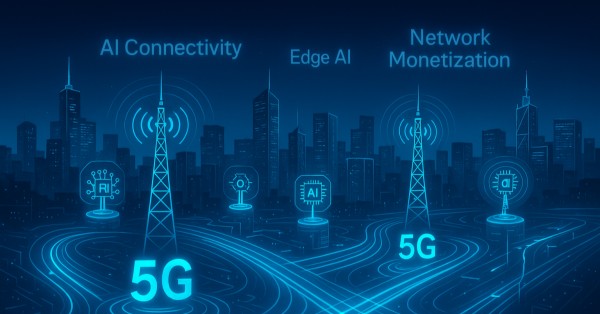Bradley University, located in Peoria, Illinois, is set to pioneer a transformative education experience by being the first university in the U.S. to implement T-Mobile’s 5G Advanced Network Solutions (ANS). The university’s partnership with T-Mobile is aimed at improving digital equity for its students, bolstering student success outcomes, increasing operational efficiencies, and enriching innovative learning experiences throughout the campus.
The significance of this partnership lies in equipping students with access to connectivity technologies, a crucial aspect of preparing contemporary learners for the workforce and ensuring equitable opportunities. The target audience for this technological advancement includes educational institutions striving to bridge the digital divide and provide advanced connected experiences for students.
In a bid to offer students, faculty, and staff an immersive 5G experience, Bradley University has signed an agreement with T-Mobile, which will see the university utilize T-Mobile’s 5G Hybrid Mobile Network. This partnership aligns perfectly with the university’s mission to provide innovative learning experiences for students and improve operational efficiencies under its Digitally Connected Campus initiative. In addition, iPad devices (10th generation) with 5G connectivity will be provided to students, faculty, and certain student-facing staff.
Recognizing the issue of unreliable connectivity faced by over half of the college students nationwide, the university plans to distribute iPads, equipped with a keyboard case and an unlimited data plan inclusive of 5G connectivity during the fall 2023 semester. This initiative allows even virtual or off-campus students to benefit from the advanced features of the iPad and access lectures, materials, and app-based learning opportunities from virtually anywhere on the nation’s largest 5G network.
Christopher Jones, PhD, Vice President for Strategy and Innovation at Bradley University, highlighted the significance of this partnership by saying, “Partnering with T-Mobile enables us to provide our students with the ability to learn in the same mobile-first environment that is increasingly prevalent in the professional world. Introducing 5G to our students and campus allows us to advance a digitally equitable learning environment and a holistically connected campus.”
The university’s president, Steve Standifird, expressed excitement over the transformative partnership with T-Mobile, stating that it brings cutting-edge technology to Bradley University, revolutionizing the way students learn, collaborate, and thrive in the digital age.
The implementation of the 5G Hybrid Network on campus facilitates more immersive classroom experiences. With its fast speeds, low latency, and reliable connectivity, 5G technology can enhance learning experiences such as virtualizing complex machinery for instructional purposes, training medical students on telehealth technologies, employing AI-powered note-taking and other digital learning tools, and adopting powerful video game development software for the university’s acclaimed game design program.
Beyond enhancing educational experiences, the 5G Hybrid Network could also improve operational efficiencies on-campus. For instance, Bradley University could leverage sensor-based data analysis to receive automated updates on various issues, including water quality, leak detection, or refrigeration malfunctions, allowing them to address any issues proactively.
Callie Field, President, T-Mobile Business Group, applauded Bradley University’s innovative approach, mentioning that Bradley University had already identified over 20 unique use cases that could enhance students’ learning experiences and the university’s operations in the future.
As part of Bradley’s Digitally Connected Campus initiative, the iPad rollout will begin during the 2023-2024 academic year, starting with full-time Bradley faculty and “discovery cohorts” of students representing roughly 25% of the student body. The full launch, slated for Fall 2024, will include students, full-time faculty, and many student-facing staff members.




























